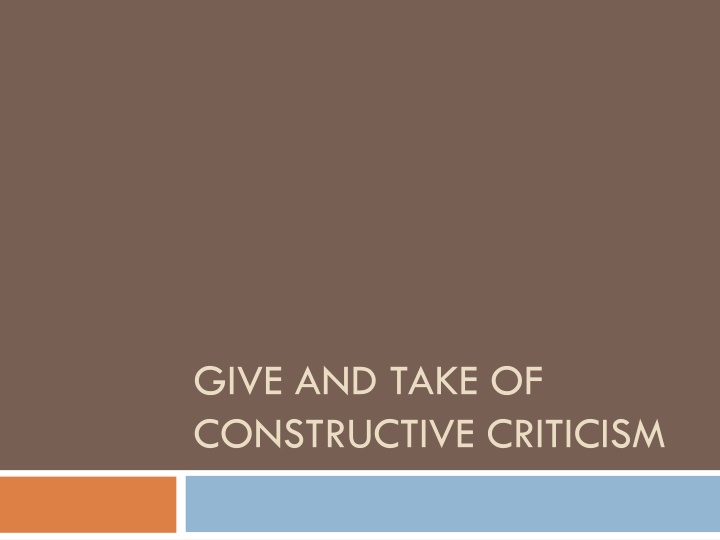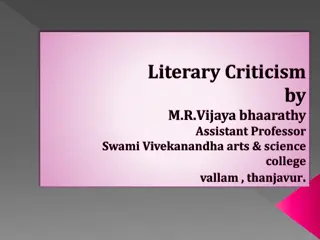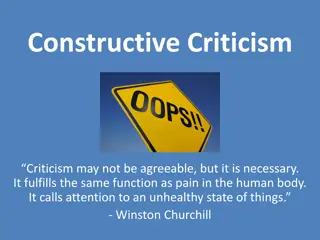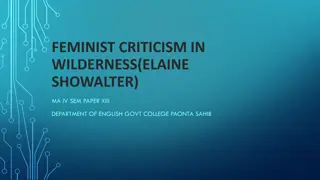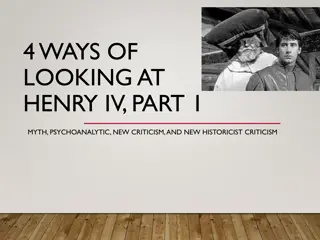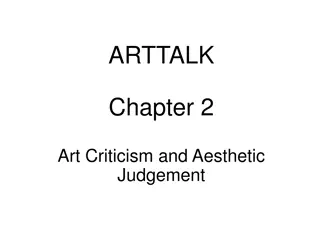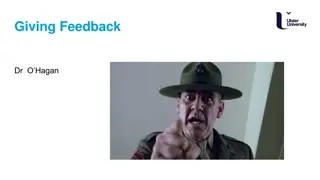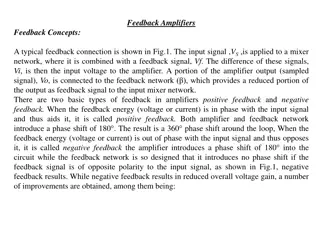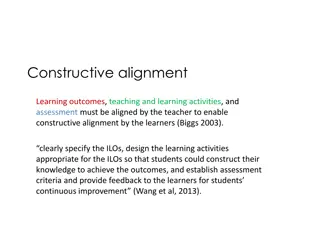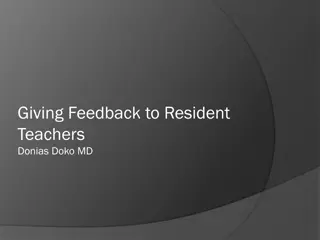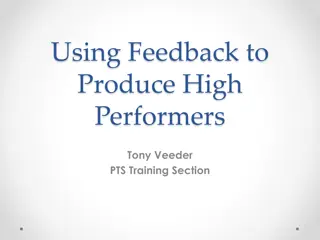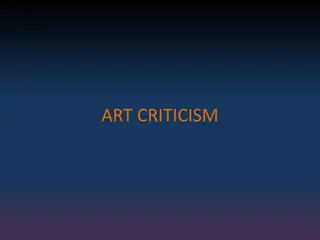Effective Feedback Strategies for Constructive Criticism
The importance of timely feedback, preparing for feedback sessions, handling case studies, and crucial communication tips for providing constructive criticism. Learn what to avoid during feedback sessions and effective strategies for before and after the feedback process.
Download Presentation

Please find below an Image/Link to download the presentation.
The content on the website is provided AS IS for your information and personal use only. It may not be sold, licensed, or shared on other websites without obtaining consent from the author.If you encounter any issues during the download, it is possible that the publisher has removed the file from their server.
You are allowed to download the files provided on this website for personal or commercial use, subject to the condition that they are used lawfully. All files are the property of their respective owners.
The content on the website is provided AS IS for your information and personal use only. It may not be sold, licensed, or shared on other websites without obtaining consent from the author.
E N D
Presentation Transcript
GIVE AND TAKE OF CONSTRUCTIVE CRITICISM
Preparing and Planning When should feedback occur? Choosing the time and place Repeated events or behaviors Gather facts Breaches in agency policy When informal feedback hasn t worked Immediately after the occurrence
Case Study Joseph has been monitoring his employee, Susan, and notices that she has continued to be late to their weekly meetings. He also notices that even though she is late, she does contribute to the meeting and has her materials ready. However, her tardiness usually upsets the other employees and disrupts the presentation of reports that they have prepared. Joseph sent Susan an email a few days before the meeting and reminded her that she is supposed to arrive on time and be ready for her coworkers reports. That week Susan was late for the meeting again. Afterwards, Joseph called Susan into his office and spoke with her about the problem. She had excuses, such as car trouble or broken alarms. Joseph reminded Susan where it is against company policy to constantly be tardy and reviewed the policy page with her, including possible consequences for continued behavior. At the following week s meeting, Susan arrived on time.
Communication Is Critical Practice your tone Check the ego Criticize in private; praise in public It has to be face to face Create a safe atmosphere
Communication Is Critical Monitor body language Check for understanding Active listening Diffuse anger and/or negative emotions Document
What Not to Do Attacking or Blaming Not Giving Them a Chance to Speak. Talking Down Becoming Emotional Always Keep Emotions in Check
During your session Feedback Sandwich Ask for a Self-Assessment Set SMART Goals Stay on Topic Be Collaborative Avoid YOU Messages Ask for Their Input Document Be as Specific as Possible Create an Action Plan http://Criticism Kabob
After your session Make Yourself Available Be Very Specific with the Instructions Provide Support and Resources Focus on the Future Measure Results
Was the plan followed? What plan of action was decided upon? What goals were set? What specific tasks were outlined for improvement? Was there a timeline in place and was it reasonable?
